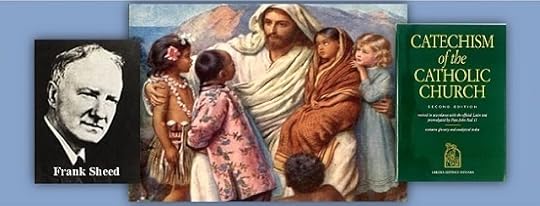Carl E. Olson's Blog, page 96
May 20, 2014
Homosexuality and the Logic of a Disordered Polity
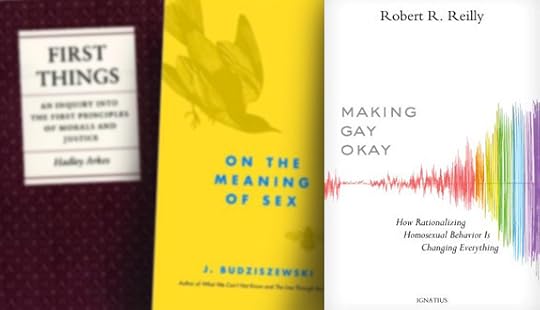
Homosexuality and the Logic of a Disordered Polity | Fr. James V. Schall, SJ | CWR
Robert Reilly’s new book, Making Gay Okay, is an objective and logical discussion of where certain ideas and actions must—and do—invariably lead
“‘But surely,’ someone will object, ‘it isn’t easy for vice always to remain hidden.’ We’ll reply that nothing great is easy. And, in any case, if we’re to be happy, we must follow the paths indicated in these accounts. To remain undiscovered we’ll form secret societies and political clubs. And there are teachers of persuasion to make us clever in dealing with assemblies and law courts. Therefore, using persuasion in one place and coercion in another, we’ll outdo others without paying a penalty. ‘What about the gods? Surely we can’t hide from them or use force against them!’ Well, if the gods don’t exist, or concern themselves with human affairs, why should we worry at all about hiding from them?” — Adeimantus, The Republic of Plato, II, #365c-d.
I.
In my mind, I associate three books together—Hadley Arkes’ First Things, Jay Budziszewski’s On the Meaning of Sex [Editor's note: See CWR's April 2012 interview with Dr. Budziszewski], and Robert Reilly’s new book, Making Gay Okay: How Rationalizing Homosexual Behavior Is Changing Everything. Together they constitute, as it were, a “trilogy” that makes intelligible our acknowledged or unacknowledged public disorder of soul. When Aristotle distinguished political regimes in his Politics, he pointed out that each regime within itself—monarchy, aristocracy, polity/tyranny, oligarchy, democracy, and the mixed regimes—manifested a certain order. This order, in its turn, revealed the souls and character of the citizens of the regime. In addition, regimes become better or worse through time. They change; they decline and fall, rise and ascend. The criterion of what is good and what is not is grounded in what is. Man discovers reality. He does not will it or make it, except in so far as he bases himself on being, to follow it or to reject it.
Changes in regimes always reveal and follow a certain “logic.” When polities change, they do so for a purpose found ultimately in the souls of the citizens that constitute them. Such changes, ultimately, are set in motion by the free choices of citizens about how they live. How they live follows on how they think. Political “structures” do not “determine” the virtue or vice of citizens. They follow and flow from them. There is a “best” regime, an “in-between” regime, and a “worst” regime. The steps by which one goes from bad to good, or from good to bad, are inherent in things themselves. These steps are open to the mind’s understanding. “Man did not make man to be man,” as Aristotle put it. He is already a “made” reality before he begins to think of why he is as he is.
What man makes of himself will thus follow the logic of his being, not the logic of his will alone. Yet, as St. Thomas pointed out in his Summa (I-II, 91, 5), there is an order in disorder. To think and act against the good leads step by step, whether we like it or not, foresee it or not, to that which is most opposed to the good of any order. One goes gradually and incrementally from good to bad one step at a time. Each change makes a further ascent or declination possible, even likely. But change is always in the direction of making man more or less human. He always insists that he acts to make things better, even when he is doing the worst.
Man is responsible for what he makes or allows himself to be. He cannot make himself to be non-human. But he can make himself to be good man or bad man. Aristotle said that man can make himself worse than the beasts. He was not criticizing the beasts. Being indirectly protects the good by punishing a disorder of soul in the very living of out of the disorder. Such disorder and its “punishment” can be seen and traced in objective terms; this is what sociology and political science are at their best.
This tracing of the human good as it systematically deviates from its essence is what Reilly's book does.
Continue reading at www.CatholicWorldReport.com.
May 18, 2014
No Christ, No Church; Know Christ, Know the Church

"St. Peter Preaching in the Presence of St. Mark" (c. 1433) by Fra Angelico
A Scriptural Reflection on the Readings for May 18, 2014, the Fifth Sunday of Easter | Carl E. Olson
Readings:
• Acts 6:1-7
• Psa 33:1-2, 4-5, 18-19
• 1 Pet 2:4-9
• Jn 14:1-12
Perhaps you, like me, know people who express belief in Jesus, but have no interest in the Church.
I once conversed with a young non-Catholic man who summed up this approach by saying, matter-of-factly: “I’m into Jesus, not the Church.” There were several reasons for his attitude, including the faulty belief that since the Church is only an external institution (as he apparently perceived "the Church"), it can have little to do with inner, spiritual transformation.
However, since Jesus did found the Church—described by Saint Paul as the body of Christ (cf., 1 Cor 12:27; Eph 5:23; Col 1:24)—it behooves us to be both “into Jesus” and “into the Church.” Today’s readings help us appreciate this since they provide insights into the nature and purpose of the Church. Jesus himself established a basic foundation during his Last Supper discourse. Talking about the mystery of his relationship with the Father, a central theme in the Gospel of John, the Son explained that he came to reveal the Father, to do the Father’s works, and to give his disciples the ability to perform similar—even greater—works. “Whoever has seen me,” Jesus declared, “has seen the Father.”
The Swiss theologian Hans Urs von Balthasar, in writing about this perfect, loving relationship between the Father and Son, observed that the Son “steps forward (with divine authority) in order to make the Father visible, and simultaneously he steps back (as the Suffering Servant) in order to reveal the Father, not himself. … In other words, the Father reveals himself by revealing the Son; he gives himself by giving his Son…” (In The Fullness of Faith, Ignatius Press). What does this have to do the Church? The answer comes into sharper focus further on in John’s Gospel, when Jesus offers this stunning prayer to the Father, “The glory which thou hast given me I have given to them, that they may be one even as we are one, I in them and thou in me, that they may become perfectly one, so that the world may know that thou hast sent me and hast loved them even as thou hast loved me” (Jn 17:23-24).
So, the Father has sent the Son to redeem humanity by drawing us back to himself through love and mercy into the life-giving communion of the Trinity. “He calls together all men,” the Catechism explains, “scattered and divided by sin, into the unity of his family, the Church” (CCC, par 1). Mankind was originally a single family. When Adam and Eve sinned, man’s communion with God was suddenly ruptured. God, however, already had a plan of salvation that would create a new family bound together by divine life. This family is the Church, the “household of God” and “the pillar and support of truth” (1 Tim 3:15). Or, as St. Peter puts it in today’s Epistle, we are being “built into a spiritual house”; we are a “chosen race, a royal priesthood, a holy nation, a people of his own…”
The reading from the Acts of the Apostles provides a snapshot of the Church’s concrete, external character. As the early Church grew rapidly, the Apostles recognized the need to grant authority to other men—the first deacons—to carry out certain duties. This was accomplished through prayer and the laying on of hands by the Apostles, part of the continuing work of Christ in his Church, accomplished by the power of the Holy Spirit.
Such apostolic action was all about spreading the word of God and drawing men to the Father. In that way the unity of the Twelve upheld and served the communion of the Church; the Apostles, in continuing the work of the Son, “would reflect and witness to the communion of the divine persons” (CCC, par 877). The Church, then, is a gift of the Trinity bringing man into saving communion with the Father, the Son, and the Holy Spirit. If you’re “into” Jesus, you must be “into” the Church.
(This "Opening the Word" column originally appeared in the April 20, 2008, issue of Our Sunday Visitor newspaper.)
May 17, 2014
My Afternoon with the Atheists
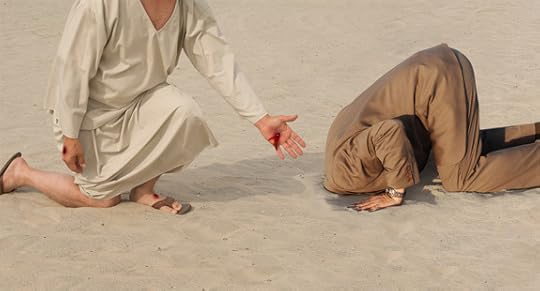
(© James Steidl - Fotolia.com)
My Afternoon with the Atheists | Dr. Eric Cunningham | CWR
Note to self: Next time, bring Christ
Shortly after Christmas, I was invited to take part in a “friendly discussion” at the monthly meeting of a local chapter of self-described “freethinkers.” I’m not sure how they decided to approach me. Possibly they went window shopping on the websites of local universities, saw my name somewhere on the Catholic Studies page, and figured that I would be a suitable target—I mean, honored guest. I learned from Mr. F., the nice fellow who contacted me, that this meeting would be a special one: It would be graced by the presence of Dan Barker, internationally known atheist-convert and co-president of the Freedom From Religion Foundation (FFRF), the parent organization of their own group.
A wary acceptance
I told Mr. F., by way of declining his offer, that I didn’t think any group of people so stridently bent on the eradication of free religious speech would really be capable of free thought or friendly discussion. I also shared with him my impression (formed from the FFRF website and several YouTube videos) that Dan Barker was a manipulative propagandist who seemed more interested in preaching the gospel of atheism than in exchanging ideas. “Thanks,” I said, “but no thanks.” As a person who says “yes” to almost every request and winds up regretting it too often, I was impressed with myself for so decisively sidestepping this engagement.
However, Mr. F. was politely persistent, and true to my nature, I did reconsider the invitation, thinking that maybe some good could come of my going to this meeting. For a week I exchanged e-mails with Mr. F. and did further research on the Freedom From Religion Foundation. I was struck by the contrast between the cheerful goodwill of Mr. F.’s e-mails and the one-dimensional bigotry that suffuses Barker’s website. There is a great deal more to the FFRF than its purported civic mission to promote the separation between church and state. The Freedom From Religion Foundation is a full-fledged anti-crusade, not content with merely articulating the philosophical basis of atheism—which it does embarrassingly poorly—butrather seeking to vilify the religious worldview and the people who hold it. Having lived my life in a confused, divided, and often dysfunctional Church, I can understand why people get upset with religion and want to check out—but for the life of me I don’t know why anybody would spend his life trying to destroy something he thinks isn’t real.
I tried to get Mr. F. to tell me what the format of the event would be. I’ve participated in public lectures, conference panels, round-tables, keynote addresses, after-dinner talks, and debates,and I’ve learned that it’s very important to know exactly what’s going to happen when one is speaking on potentially hostile turf. Unfortunately, I could get no solid answer, so I proposed a format of my own: I would speak for 15 or 20 minutes on a variety of themes related to consciousness, virtual reality, and the spiritual world, all under the provocative title “Christianity Is the Only Truth,” and let the chips fall where they may.
A confession
I want to make clear that the purpose of this reflection is not to bash or belittle the “freethinkers” of my community, or even Barker—although he is indeed a manipulative propagandist by any measure—but to make a public confession of my own shortcomings as a Christian.
May 16, 2014
"Words can define, or distort and divide, and they’re currently at the heart of this divided country."
Sheila Liaguminas, author of the recently published Non-Negotiable: Essential Principles of a Just Society and Humane Culture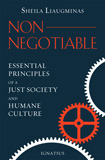 (Ignatius Press, 2014), reflects on MercatorNet.com on some of the reasons for writing the book:
(Ignatius Press, 2014), reflects on MercatorNet.com on some of the reasons for writing the book:
Over the past five decades, the world has gone through radical changes in every area of life. Mass populations have gained great access to information and lost the sense of its meaning. Nations have lost their borders and become what Chicago’s Cardinal Francis George calls “communities on continents in conversation”.
But people can’t have a conversation when they don’t speak the same language or understand the words as a minimally basic reference point. Even if they’re all speaking English. Even if they’re all living in the United States of America.
Words can define, or distort and divide, and they’re currently at the heart of this divided country. We don’t know how to talk with each other, apply critical thinking skills, carry ideas through to their logical conclusions. We don’t know how to presume good intentions, defend a position with reason, or disagree with civility.
The lines are drawn. Rights and wrongs are more strongly asserted and fought over than they have been in a long while. But who drew those lines and who declares what’s right and wrong, based on what authority? There are as many questions as answers. But the good news is that there are answers. The moral compass of a nation may be broken, but at least there is one in the world, and for purposes of this discussion, in a nation founded on Judeo-Christian ethics written into its founding documents, ingrained in its people and woven into the fabric of their common life.
This discussion is my new book Non-Negotiable: Essential Principles of a Just Society and Humane Culture. It has been forming since a little girl encountered segregation in the Deep South and became a little activist for social justice without knowing that such a term existed.
It grew in my intellect and experiences as a student in the age of revolution and as a journalist for a major secular newsmagazine, television network, and assortment of magazines in an era of liberal dominance of each, and of academia. It even conquered the Catholic Church, wrung through a false interpretation of the Second Vatican Council. The world was turning upside down and inside out.
But some things, I knew, were still immutable truths. I just kept my head down and went forward, confused and yet searching for the truth. Always searching for The Truth. Because I knew it was there and could be found.
Read her entire essay at MercatorNet.com.
Here is what George Weigel, Cardinal George, and others are saying about Non-Negotiable:
"Sheila Liaugminas is an articulate voice of the New Evangelization and as she demonstrates in this powerful book, being seriously Catholic today means being part of a culture-reforming counterculture."
- George Weigel, Author, Evangelical Catholicism
"Combining the passion of personal conscience and the convictions of reason and faith, Sheila Liaugminas analyzes conflicted points in our culture in the light of first principles. It's a good tool in skilled hands."
- Francis Cardinal George, O.M.I. Archbishop of Chicago
"Sheila Liaugminas stresses in her fine book that 'Complacency is not an option,' and she hammers home that point with brilliant insight into the past, present and future of all the so-called 'social issues' that continue to divide America. This book is a must-read for every person of faith who understands that action is needed – now – if we ever hope to build a free, just and humane society."
- Dr. Alveda King, Director of African-American Outreach, Priests for Life
"I truly admire Sheila Liaugminas. She is an outstanding journalist. We have dialogued extensively on her radio program about the rights of conscience and the protection of what we call our 'first principles.' Sheila has laid out in great breadth and depth the need for a revived understanding of the essentials of human dignity and societal organization."
- Jeff Fortenberry, Member of Congress
"Both Pope Benedict XVI and Pope Francis have spoken of the 'dictatorship of relativism' in our world today and its negative impacts not just on our faith, but to the common good of society. Shelia Liaugminas draws upon the universal principle of natural human rights and dignity to address several contemporary moral issues which have suffered as a result of a relativistic mindset. Her book is a valuable resource in the struggle to restore a true, just and virtuous society."
- Most Reverend Thomas Paprocki, Bishop of Springfield, Illinois
"Sheila Liaugminas brings her keen insights on applying timeless truths to important issues of the day. She demonstrates how 'first principles' have made free, just, and humane society possible and explains why these principles must be non-negotiable. As America grapples with issues of freedom and justice today, Sheila's book is a must-read for those who want to understand why it is critical that we do not back down from "human truths" – affirmed by the Catholic Church and others – if we want a society that protects every individual's life and dignity."
- Dan Lipinski, Member of Congress
Scouting’s Next Battleground
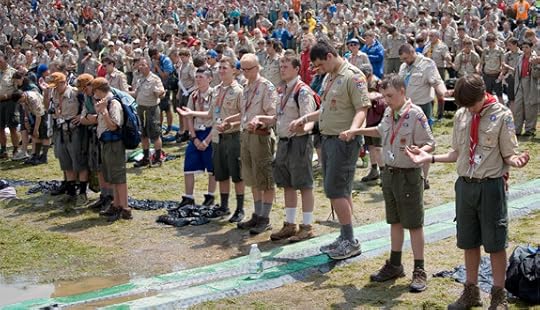
Boy Scouts pray the Our Father during Mass at the National Boy Scout Jamboree at Summit Bechtel Family National Scout Reserve in Mount Hope, W.Va., July 21, 2013. (CNS photo/Tim Bishop, Catholic Spirit)
Scouting’s Next Battleground | Anne Hendershott | CWR
The Boy Scouts of America is now being pressured to allow openly gay adult scout leaders
Disney is the latest corporation to announce an end to financial support for the Boy Scouts of America (BSA) because of the Boy Scouts’ ban on openly gay adult Scout leaders. Joining former BSA sponsors—including Lockheed Martin, Major League Soccer, UPS, and others that have ended relationships with the BSA—Walt Disney World announced that it will no longer support the organization. The BSA’s official position bans openly gay Scout leaders, even though on May 23, 2013, following years of public pressure, the organization’s national governing body voted to lift its long-standing ban on openly gay youth in the program.
Now, the pressures are mounting to remove the ban on openly gay leaders. Last month, Seattle’s Rainier Beach neighborhood became the latest battleground in the gay-rights culture wars when the Boy Scouts of America revoked the charter of Seattle’s newest Scout troop for refusing to remove its openly gay Scoutmaster. Seattle’s Troop 98, which has only been chartered by the BSA for a few months, is led by Geoff McGrath, an Eagle Scout who is married to his longtime male partner.
Last month, the BSA advised Rainier Beach United Methodist Church, the sponsor of Seattle Troop 98, to dismiss Mr. McGrath as Scoutmaster because he discussed his sexual orientation in a news story with NBC Nnews.When the church refused, the BSA officially revoked the Church’s charter agreement.
BSA spokesman Deron Smith suggested that McGrath’s sexual orientation would not have become an issue until McGrath made it public. In an e-mail published by NBC News, Smith wrote: “Our policy is that we do not ask people about their sexual orientation, and it is not an issue until they deliberately inject it into Scouting in an inappropriate fashion.” Sharon Moulds, the leader of the BSA Seattle Council, told NBC News that the Council did not inquire about McGrath’s sexual orientation—as directed by BSA policy—when he applied for a leadership position. She said she found out McGrath was gay only after NBC News contacted her: “It was then that we became aware of his intentions to make a public statement about his orientation and use our program as a means to further a personal agenda.”
While McGrath denies that his decision to help create the Seattle troop was an attempt to gain media attention for what he sees as a discriminatory BSA policy to ban openly gay troop leaders, he acknowledged to NBC News that “If you don’t participate, you’re not part of the conversation. Yelling from the outside is not conversing. So we’re on the inside doing good work.” The Rainier Beach minister, Monica Corsaro, told a reporter for NBC News that she invited McGrath to lead the fledgling troop at her church.
Assessing a Policy Change Impact
Removing the current BSA policy barring “avowed homosexuals” as volunteers is more complex than McGrath and Corsaro will acknowledge because it involves a volatile mix of parental concerns, religious concerns, financial concerns, and a not insignificant concern about liability.
May 15, 2014
Dynamic Youth Chastity Series Launched from YDisciple
New online parish youth ministry program also available now!
San Francisco, May 15, 2014 – The first two DVD sets in the multi-media YDisciple® formation program for young people have just been released. The two DVD sets, TRUE STRENGTH and TRUE BEAUTY , focus on chastity formation.
, focus on chastity formation.
TRUE STRENGTH (4 discs) examines masculinity and the virtue of chastity for young men. Based on biblical teaching and principles, this series helps young me discover masculinity as God’s invitation for them to be men of greatness. TRUE STRENGTH features many of the best Catholic speakers, including Chris Stefanick, Jason Evert, Matt Fradd, and Scott Powell, and comes with a leader’s guide and a study guide.
TRUE BEAUTY (4 discs) explores femininity and the virtue of chastity for young women. This series helps young women joyfully live out chastity in the midst of an unchaste culture. Crystalina Evert, Sarah Swafford, Mary Bielski, Lisa Cotter, and others are featured in these inspiring presentations for young women. TRUE BEAUTY also has a leader’s guide and a study guide.
TRUE STRENGTH and TRUE BEAUTY are two parts of YDisciple®, an exciting new formation program for youth from the Augustine Institute, available through Ignatius Press and Lighthouse Catholic Media. Three years in the making, YDisciple® is a powerful program developed by a team of experienced youth ministers, speakers, and theologians.
In addition to the newly released DVD sets, YDisciple® provides a host of resources available on an online platform, including: numerous highly engaging video series for teens; training videos for adults; leader, teen, and parent resources; and guided small group activities.
YDisciple® works through a small group model by equipping committed adults to meet young people right where they are – with all their fears, doubts, and questions – to form young disciples.
By empowering key adults in the parish community, YDisciple® is able to provide effective, dynamic youth ministry with little-to-no dedicated staffing resources. This makes it perfect for the 88% of parishes that don’t have full-time, professional staff, and an ideal complement for those that do.
Jesus modeled discipleship when He invested His life in a small group of men and gave the Church the vision of reaching the world through the multiplication of disciples, and YDisciple® follows this example.
Sean Dalton, the Associate Director of YDisciple®, explains the reason YDisciple® is an effective ministry for the youth: “A great poverty in the life of teenagers today is a lack of meaningful relationships with caring, faith-filled adults. The YDisciple® online platform is designed to mobilize as many adults as possible in order to meet the needs of teenagers: a need to belong, a need to be transparent, a need to engage in critical thinking around beliefs, and a need for guidance. Small group discipleship provides an ideal environment to meet those needs and help teenagers take ownership of their faith.”
Ignatius Press and Lighthouse Catholic Media have partnered with the Augustine Institute and YDisciple® to spread the word about this ground-breaking program. For more information or to order YDisciple®, please visit: www.YDiscipleIP.com
About the Associate Director of YDisciple®
Sean Dalton received his Master of Arts in Theology and Certification in Catechetics from Franciscan University in 1998. Sean has 20 years of experience in youth, young adult and campus ministry as a parish youth minister, Diocesan Director, and Regional Director with FOCUS. Sean joined the YDisciple® team at the Augustine Institute in July, 2013. Sean and Jenn have 5 children and live in Littleton, CO.
Associate Director Sean Dalton is available for interviews about YDisciple®.
For a sample study or to request an interview with Sean, please contact: Rose Trabbic, Publicist, Ignatius Press, (239) 867-4180 or rose@Ignatius.com
May 14, 2014
New: "Non-Negotiable: Essential Principles of a Just Society and Humane Culture"
Now avaiable from Ignatius Press:
Non-Negotiable: Essential Principles of a Just Society and Humane Culture

by Sheila Liaugminas
• Also available in Electronic Book Format
What gave Abraham Lincoln the authority to declare the freedom and choice to own slaves as immoral? After all, the law of the land allowed it. What gave Rev. Dr. Martin Luther King the authority to lead a whole movement calling civil laws immoral and demanding new civil rights laws that recognized the equal dignity and worth of "all God's children" without exception? After all, segregation was legal. What gave the United Nations the moral authority to claim and designate absolute human rights in an international declaration, though some member nations were already violating them?
Principles. First principles. In their founding documents, the United States and the United Nations recognized the principles that all men have inherent dignity and that they deserve equal rights. They both have declared those principles the conditions fundamental to freedom, justice, and peace. Yet both the United States and the United Nations have within them powerful political forces passing laws or resolutions that violate first principles and put at risk the most vulnerable populations.
This book goes beyond the politics of pragmatism and cultural relativism to reacquaint the reader with first principles. It demonstrates what the Church has to say about the most important issues of our time and why. It anticipates the questions readers will ask and provides the answers they will need in the struggle to restore respect for human dignity.
Sheila Liaugminas is an Emmy Award-winning Chicago-based journalist in print and broadcast media. She reported for Time magazine in its Midwest Bureau for over 20 years, and co-hosted the Chicago television program YOU. She has appeared on Fox Chicago News and the BBC. Liaugminas is an established contributor to MercatorNet.com, and has been published in the Chicago Tribune, Crain's Chicago Business, Crisis, National Catholic Register, and National Review Online. She currently hosts the daily radio program A Closer Look on Relevant Radio.
Praise for Non-Negotiable:
"Sheila Liaugminas is an articulate voice of the New Evangelization and as she demonstrates in this powerful book, being seriously Catholic today means being part of a culture-reforming counterculture."
- George Weigel, Author, Evangelical Catholicism
"Combining the passion of personal conscience and the convictions of reason and faith, Sheila Liaugminas analyzes conflicted points in our culture in the light of first principles. It's a good tool in skilled hands."
- Francis Cardinal George, O.M.I. Archbishop of Chicago
"Sheila Liaugminas stresses in her fine book that 'Complacency is not an option,' and she hammers home that point with brilliant insight into the past, present and future of all the so-called 'social issues' that continue to divide America. This book is a must-read for every person of faith who understands that action is needed – now – if we ever hope to build a free, just and humane society."
- Dr. Alveda King, Director of African-American Outreach, Priests for Life
"I truly admire Sheila Liaugminas. She is an outstanding journalist. We have dialogued extensively on her radio program about the rights of conscience and the protection of what we call our 'first principles.' Sheila has laid out in great breadth and depth the need for a revived understanding of the essentials of human dignity and societal organization."
- Jeff Fortenberry, Member of Congress
"Both Pope Benedict XVI and Pope Francis have spoken of the 'dictatorship of relativism' in our world today and its negative impacts not just on our faith, but to the common good of society. Shelia Liaugminas draws upon the universal principle of natural human rights and dignity to address several contemporary moral issues which have suffered as a result of a relativistic mindset. Her book is a valuable resource in the struggle to restore a true, just and virtuous society."
- Most Reverend Thomas Paprocki, Bishop of Springfield, Illinois
"Sheila Liaugminas brings her keen insights on applying timeless truths to important issues of the day. She demonstrates how 'first principles' have made free, just, and humane society possible and explains why these principles must be non-negotiable. As America grapples with issues of freedom and justice today, Sheila's book is a must-read for those who want to understand why it is critical that we do not back down from "human truths" – affirmed by the Catholic Church and others – if we want a society that protects every individual's life and dignity."
- Dan Lipinski, Member of Congress
May 13, 2014
Save 20%* on "Making Gay Okay" and related titles from Ignatius Press.

"A rare tour de force on a defining question of our time."
- Robert Royal, PhD, President, Faith & Reason Institute
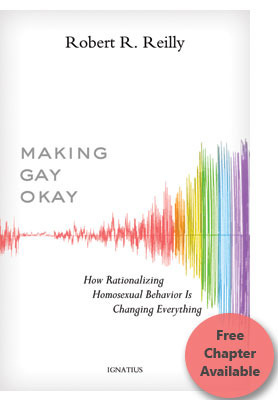
Making Gay Okay
How Rationalizing Homosexual Behavior Is Changing Everything
Robert R. ReillyAt stake in the rationalization of homosexual behavior is the notion that human beings are ordered to a purpose that is given by their Nature. The understanding that things have an in-built purpose is being replaced by the idea that everything is subject to man's will and power, which is considered to be without limits. This is what the debate over homosexuality is really about-the Nature of reality itself. The outcome of this dispute will have consequences that reach far beyond the issue at hand.
Hardcover, $22.95 — eBook also available.
More Info
"This book should be required reading for anyone who writes our laws-in fact, for anyone with cultural decision-making power."
— Joseph Nicolosi, PhD,
Co-Founder, National Association for Research and Therapy of Homosexuality (NARTH)
"This book is a stark warning that should be read by every lover of liberty, and a call to action for those who would preserve it."
—John C. Eastman, JD, PhD Chairman, National Organization for Marriage Founding Director, Claremont Institute Center for Constitutional Jurisprudence
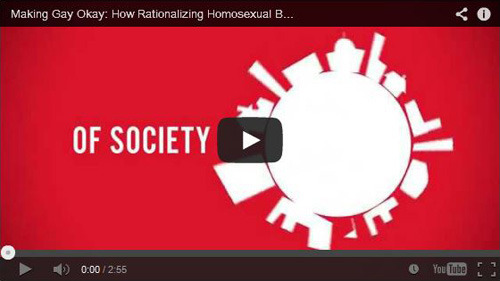
Save 20%*on this title and the related titles listed below
by entering the coupon code MAKING at checkout!
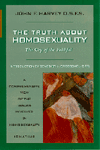
The Truth about Homosexuality
Fr. John F. Harvey
$17.95
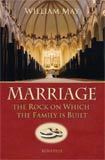
Marriage, 2nd Edition
William May
$14.95
eBook and audio download also available.
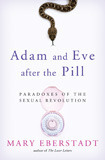
Adam and Eve
after the Pill
Mary Eberstadt
$15.95
eBook also available.

The Battle for Normality
Dr. Gerard van den Aardweg
$11.95
eBook also available.
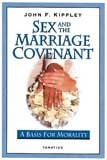
Sex and the Marriage Covenant
John Kippley
$17.95
eBook also available.
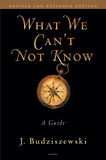
What We Can't
Not Know
J Budziszewski
$17.95
eBook and audio download also available.
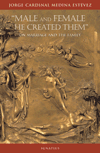
Male and Female He Created Them
Cardinal Jorge
Medina-Estevez
$14.95
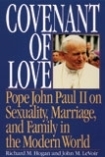
Covenant of Love
Fr. Richard Hogan and Bishop John M. Levoir
$16.95
eBook also available.
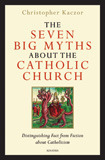
The Seven Big Myths about the Catholic Church
Christopher Kaczor
$17.95
eBook also available.
Also available from Christopher Kaczor:
The Seven Big Myths about Marriage



Forward
*This offer is valid online only from May 13, 2014 until May 19, 2014 midnight EST.
Copyright © 2014 Ignatius Press, All rights reserved.
America’s First Mass

St. Brendan (Naomh Breandán) and the whale by Honorius Philoponus from "Novi Orbis Indiae Occidentalis" (1621)
America’s First Mass | John Buescher | Catholic World Report
When was it, where was it, and who said it?
When and where was the first Mass offered in America? No one living today knows the answer to this intriguing question. But we can summarize what we do know about the first Masses in various parts of the New World.
Some legendary accounts of the life of St. Brendan, who was a priest, say he set off in a small boat on a journey to the Isle of the Blessed, sometime around A.D. 512, along with 14 monks and priests. After they landed on Saint Brendan’s Island—wherever that was—he celebrated Mass. There are people who say that elements of the legends of the journey demonstrate that the Irish did have some knowledge of the northeast Atlantic coast of America, so if St. Brendan or some other Irish seafaring priest did arrive there, he would certainly have offered Mass, as he is said to have done in nearly every other place he visited (including, as the legend goes, on the top of a whale in mid-ocean).
Remains of a Norse settlement at L’Anse aux Meadows, on the island of Newfoundland, were discovered and excavated in the 1960s. The settlement dates from around A.D. 1000. It was probably not the only settlement the Norse set up in the region, and it was likely that it served as a sort of permanent outpost for shipping lumber and furs to Greenland and perhaps further east. The size and number of buildings suggest that as many as 150 people lived there.
Icelandic bishop Eric Gnupsson, who had been based in Greenland since 1112, “went to seek Vinland” in 1121—presumably to minister to some of his far-flung Catholic flock—but nothing more was reported of him. If he succeeded, he surely offered the first Mass in the New World, perhaps at L’Anse aux Meadows or at another Norse settlement. With the approval of the Norwegian king, a bishop for Greenland was set up and the see was established in the settlement of Garðar. The first bishop, Arnaldur (Gnupsson’s immediate successor in Greenland), arrived there in 1126 and began construction of a cathedral, devoted to St. Nicholas, the same year. The last bishop served until 1378. Archaeologists have excavated the ruins of the cathedral, a cross-shaped church built of sandstone.
The first American Mass for which a record exists took place during the second voyage of Columbus, on the feast of the Epiphany, January 6, 1494, at a temporary shelter that would serve as a church at La Isabela, 30 miles west of what is now Puerto Plata in the Dominican Republic. Five priests accompanied the expedition: Benedictine Father Buil, Jeronymite Father Ramone Pane, and three Franciscan missionary priests. Fr. Buil celebrated the Mass. The settlers built a church on the site, the foundation of which has been excavated (another church building is now at La Isabela). The original settlement was abandoned by 1498 and its settlers moved to the newly established Santo Domingo on the south side of the island.
There is some solid but as yet inconclusive evidence that in that same year of 1498 the first Mass may have been celebrated on the North American continent (apart from the Norse settlements).
May 12, 2014
Catechetical and Pastoral Emphasis in the Apologetics of Frank Sheed
Catechetical and Pastoral Emphasis in the Apologetics of Frank Sheed | James Iovino | HPR
Vatican II calls the laity to take a more active role in not just the worshipping life of the Church, but the teaching life, too. While Sheed agrees … we evangelize best principally through a pastorally oriented and properly formed apologetics
Despite falling into disfavor in the middle of the 20th century, apologetics has had a long and storied history in the life of the Catholic Church. 1 As an increasingly confident and hostile secularism exerts a massive influence in the daily lives of both the faithful and unbeliever alike, Church leaders have urged a renewal of the apologetic discipline in the life of the Church to cultivate future generations of confident Catholic evangelists and meet the challenges of secularism. Pope John Paul II, in 1999, called for a “new apologetics, geared for the needs of today” while a decade later the Prefect of the Congregation for the Doctrine of the Faith, Cardinal Levada, argued that an urgent new apologetics was “the principle task of (the Church’s) mission at the beginning of the third millennium of Christianity.” 2 Implicit in the calls for a new apologetics is not simply a return to doing apologetics, but rather fashioning new and different ways to explain, defend, and make relevant the Catholic Faith. However, in formulating the new apologetics, today’s Catholic apologists would do well to revisit the theories and methods of Frank Sheed, one of the 20th century’s most prolific defenders of the Catholic Faith. An examination of Sheed’s apologetics, and its relevance to today’s new formulation, is especially fruitful because Sheed was a prolific writer who left an extensive corpus of apologetic materials with clear views on methodological best practices. He also worked within the cultural context of both a great Catholic intellectual renaissance (the 1920s and 1930s) and a dark period of religious decline (1960s and 1970s). While specific recommendations for the “new apologetics” is beyond the scope of this paper, I will examine Sheed’s apologetics, and argue that his explanation and defense of Catholicism were never divorced from solid catechesis, and were always tied to an explicit and urgent pastoral mission, two essential aspects of any successful “new apologetics.”
Catechesis is absolutely central to Sheed’s understanding of apologetics, beginning with the apologist’s own relationship with God. 3 While he acknowledges that God desires a loving relationship with us, and that we are saved through love of him, Sheed argues that we cannot love him adequately if we first do not know him well. Sheed understands the relationship of catechesis to apologetics in three stages: knowledge, possession, and saturation. Knowledge of God is important because “knowledge serves love … in one way by removing misunderstandings which are in the way of love (and) because each new thing learned about God is a new reason for loving him.” 4 By knowing more about God, we do not just love him more; we love him better. God would be a strange God, indeed, if he could be loved better by being known less. 5
Mere knowledge, however, is not enough for successful apologetics. Thus, Sheed emphasizes a robust catechesis wherein the apologist possesses what the Church teaches by its doctrines and dogmas. Central to this catechesis is the development of certain catechetical habits: “We must live with the idea, make it our own, learn to handle it comfortably.” 6 But proper apologetic formation does not end with possession of the great dogmas and doctrine, nor even when we have made them our own. Sheed complains that most Catholics of his day knew the Catechism answers, but fell into deep trouble when asked the meaning of the answers.
Continue reading at www.HPRweb.com.
Related articles
 "The Trinity: Three Persons in One Nature" by Frank Sheed
"The Trinity: Three Persons in One Nature" by Frank Sheed The Evangelistic Brilliance of Frank Sheed
The Evangelistic Brilliance of Frank Sheed Theology, Sanity, and the Trinity
Theology, Sanity, and the Trinity A Man Obsessed With Sanity
A Man Obsessed With Sanity "Sanity and Society" by Frank Sheed
"Sanity and Society" by Frank Sheed
Carl E. Olson's Blog
- Carl E. Olson's profile
- 20 followers


